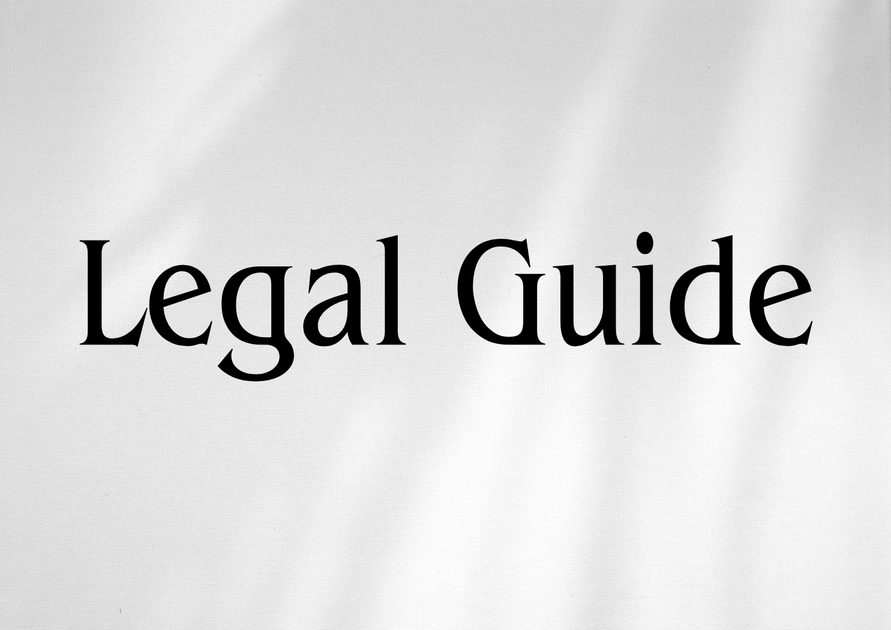Introduction
As the financial landscape across the GCC continues to evolve, Qatar’s dual banking system—encompassing both Islamic and conventional banking—plays a central role in shaping business, investment, and regulatory dynamics. Disputes arising from banking transactions are inevitable, yet the mechanisms, governing laws, and outcomes can differ significantly between Islamic and conventional models. Understanding these differences is crucial for businesses, financial executives, legal consultants, and HR managers, especially in the UAE, where cross-border transactions with Qatari institutions are frequent and legal harmonization efforts are ongoing.
The shifting regional regulatory environment, marked by updates to UAE Federal Law No. 10 of 1980 (regarding the Central Bank, the Monetary System and Organization of Banking) and increasing cooperation between the UAE and Qatar, underscores the need for robust, compliant, and proactive banking dispute management strategies. This article offers a comprehensive, consultancy-grade legal analysis of how disputes are handled in Qatar under both Islamic and conventional banking systems, with a focus on practical insights for UAE-based organizations and stakeholders. Key legal developments, compliance implications, and actionable recommendations are also examined to ensure your business is fully prepared to navigate this complex landscape.
Table of Contents
- The Legal and Regulatory Context in Qatar and the UAE
- Overview of Islamic and Conventional Banking Systems
- Common Dispute Types in Qatari Banking
- Dispute Resolution Framework in Islamic Banking
- Dispute Resolution Framework in Conventional Banking
- Comparative Analysis: Legal Mechanisms and Outcomes
- Case Studies and Hypotheticals
- Risks, Compliance Strategies, and Best Practices
- Conclusion and Forward-Looking Perspectives
The Legal and Regulatory Context in Qatar and the UAE
Qatari Banking Regulation Overview
Qatar’s banking sector is primarily governed by Law No. 13 of 2012 Concerning the Qatar Central Bank and the Regulation of Financial Institutions (the “QCB Law”), supplemented by circulars and directives from the Qatar Central Bank (QCB). The QCB is the principal regulatory authority, empowered to oversee both conventional and Islamic banks operating in Qatar.
Key regulatory developments in the UAE, such as the recent amendments under UAE Federal Law No. 10 of 1980 and Executive Regulations published in the Federal Legal Gazette, reflect a growing harmonization and push for enhanced compliance, dispute resolution efficiency, and cross-border cooperation between GCC member states.
Legal Context for UAE-Based Entities
Cross-border transactions are common between UAE and Qatari businesses. UAE corporate stakeholders must recognize that Qatari law may govern certain banking disputes by contract, especially when involving Qatari institutions. Accordingly, understanding Qatari dispute resolution mechanisms is not only legally prudent but operationally essential for risk management and regulatory compliance.
Overview of Islamic and Conventional Banking Systems
Islamic Banking: Regulatory Foundations and Principles
Islamic banking in Qatar is defined by adherence to Shariah principles, which prohibit interest (riba), excessive uncertainty (gharar), and speculative transactions (maysir). Key QCB regulations, such as Part Nine of the QCB Law and the Shariah Supervisory Board Guidelines, mandate compliance with these principles in all products and services.
Islamic banks are required to operate with dedicated Shariah boards that supervise transactional compliance. Dispute mechanisms in this context hinge upon Shariah-compliant contracts, such as Murabaha, Mudarabah, and Ijarah, which have unique legal characteristics and grounds for disputes.
Conventional Banking: Regulatory Approach and Structures
Conventional banks are also regulated under the QCB Law but function using interest-based financial instruments and global banking standards, such as those framed by the Basel Committee. These banks rely primarily on standard loan agreements and related legal documentation, which are enforceable under Qatari civil and commercial law.
| Aspect | Islamic Banking | Conventional Banking |
|---|---|---|
| Contractual Model | Shariah-based (no interest, profit-sharing) | Credit-based (interest-bearing) |
| Regulating Authority | QCB + Shariah Boards | QCB |
| Key Laws | QCB Law, Shariah Advisory Circulars | QCB Law, Civil and Commercial Code |
Common Dispute Types in Qatari Banking
Effective legal strategy requires an understanding of the primary dispute categories encountered by businesses and individuals. These typically include:
- Default and Non-Payment: Disagreements arising from delayed or missed repayments.
- Misrepresentation or Non-Disclosure: Parties allege a lack of clear information on contract terms or risks.
- Breach of Facility Agreements: Allegations related to misappropriation of funds or breach of covenants.
- Operational Disputes: Errors, unauthorized transactions, or compliance lapses.
- Shariah Compliance Breaches: In Islamic banking, disputes may arise if a party claims a transaction does not meet Shariah standards.
Dispute Resolution Framework in Islamic Banking
Statutory Provisions and Regulatory Guidelines
Dispute handling in Qatari Islamic banking is governed by the QCB Law, Shariah Supervisory Board Guidelines, and the Civil and Commercial Procedures Law (Law No. 13 of 1990). Shariah compliance issues are generally first reviewed internally by the institution’s Shariah board, before progressing to the national courts or specialized committees.
Mechanisms Available
- Internal Grievance Procedure: Customers can escalate complaints to the bank’s Shariah board, which is required under QCB Regulations to issue a formal opinion.
- QCB Complaints Committee: Oversees unresolved grievances that implicate regulatory compliance or systemic risks.
- Qatari Courts: Have jurisdiction over contractual disputes; courts often refer to Shariah board opinions but make independent determinations under Qatari law.
- Mediation and Arbitration: Increasingly favored, especially for cross-border and high-value disputes, in accordance with Law No. 2 of 2017 on Arbitration.
| Dispute Pathway | Key Stakeholders | Legal Reference |
|---|---|---|
| Internal Review | Shariah Board, Compliance Officer | QCB Circular 8/2013 |
| External Complaint | QCB Complaints Committee | QCB Law Art. 172–182 |
| Court Litigation | Civil/Commercial Court, Shariah Expert | Civil Proc. Law No. 13/1990 |
| Arbitration | Appointed Arbitrators | Arbitration Law No. 2/2017 |
Consultancy Insights: Points of Attention
Legal practitioners must ensure that all documentary evidence, particularly relating to Shariah board decisions, is properly collated and presented. When drafting contracts, specify dispute resolution clauses that align with Islamic banking regulations and ensure clarity on jurisdiction, law, and referral mechanisms (e.g., to local Shariah boards or QCB).
Example
A Qatari enterprise alleges that a Musharakah agreement was structured in breach of Shariah. The internal board reviews the transaction and rules in favor of the bank. Dissatisfied, the customer escalates the matter to the QCB Complaints Committee, which ultimately refers non-Shariah aspects to the Qatari courts. The court, benefitting from the internal board’s expertise, renders a holistic decision, blending regulatory and contractual considerations.
Dispute Resolution Framework in Conventional Banking
Relevant Laws and Authorities
Disputes in conventional banking are governed by the QCB Law, Qatari Civil Code (Law No. 22 of 2004), and Commercial Code (Law No. 27 of 2006). The Qatar Financial Centre (QFC) operates its own legal framework for entities licensed within its jurisdiction, based on English common law principles, under the QFC Law No. 7 of 2005.
Mechanisms Available
- Direct Contractual Resolution: Standard practice encourages parties to resolve disputes amicably in accordance with terms set out in facility agreements.
- QCB Complaint Review: QCB reviews systemic or recurring issues that impact customer protection and market integrity.
- Judicial Litigation: Civil and commercial courts hear contractual and tort claims, applying relevant legislation and jurisprudence.
- Alternative Dispute Resolution (ADR): Arbitration and mediation clauses are increasingly embedded in commercial loan agreements (notably, the Qatar International Court and Dispute Resolution Centre within QFC provides specialized forums).
| Dispute Pathway | Role | Governing Law |
|---|---|---|
| Amicable Settlement | Bank, Customer | Civil/Commercial Code |
| QCB Complaint | QCB | QCB Law |
| Court Action | Civil/Commercial Court | Civil/Commercial Code, QCB Law |
| ADR | Arbitrators/Experts | Law No. 2/2017 |
Consultancy Insights: Procedural Considerations
Contracts should clearly designate dispute forums and applicable law. In cross-border finance, it is advisable to negotiate waivers of sovereign immunity and designate Qatari courts or appropriate arbitration panels. UAE-based clients must anticipate the enforceability of foreign judgments and arbitral awards in Qatar, referencing the UAE-Qatar judicial cooperation protocols and the 1958 New York Convention (on the Recognition and Enforcement of Foreign Arbitral Awards), to which both states are parties.
Example
A UAE company with a Qatari credit facility defaults, alleging that undisclosed fees constitute a breach of the facility agreement. The dispute progresses swiftly to the Qatari Commercial Court, which evaluates the documentary trail and contractual compliance before issuing a binding judgment.
Comparative Analysis: Legal Mechanisms and Outcomes
| Element | Islamic Banking | Conventional Banking |
|---|---|---|
| Primary Governing Law | QCB Law, Shariah Guidelines | QCB Law, Civil/Commercial Codes |
| Type of Disputes | Shariah compliance & contractual issues | Primarily contractual issues |
| Initial Review Body | Shariah Board, QCB | Bank, QCB |
| Recourse to Courts | Yes, following internal/board review | Yes, direct or following complaint |
| ADR Usage | Emphasized (especially for Shariah-based disputes) | Increasingly common |
| Interpretive Factors | Fiqh principles, Shariah expertise | Legal precedent, contract interpretation |
| Enforcement Challenges | Mainly due to Shariah interpretation variance | Occasional, largely procedural |
Observations on Risk and Opportunity
Islamic banking disputes frequently center on Shariah compliance—raising interpretive challenges and, at times, requiring expert testimony. Meanwhile, conventional disputes focus on contractual clarity, lending greater predictability but less flexibility in court. Both systems increasingly accommodate alternative dispute resolution, but success in Islamic banking requires demonstrable expertise in both regulatory and Shariah matters.
Case Studies and Hypotheticals
Case Study 1: Shariah Non-Compliance Allegation
Scenario: A business customer claims their financing arrangement, structured as a Murabaha, actually resulted in the payment of interest. The internal Shariah board declines the claim, prompting escalation to the QCB Complaints Committee and, eventually, litigation in the Qatari courts.
Legal Analysis: Qatari courts are empowered to request expert Shariah opinions but retain discretion in applying local contract law. Businesses must engage counsel capable of navigating both commercial and Shariah nuances, ensuring background documentation conforms to both sets of requirements.
Case Study 2: Enforcing Cross-Border Judgments
Scenario: A UAE exporter secures a Dubai court judgment against a Qatari bank, seeking enforcement in Qatar under the GCC judicial cooperation framework.
Legal Analysis: Provided the transaction does not contravene Shariah or Qatari public policy, both UAE and Qatari authorities cooperate to facilitate judgment recognition. However, ambiguities may arise when contracts contain hybrid (Islamic and conventional) elements, warranting a review of jurisdictional and choice-of-law provisions at the outset of the relationship.
Process Flow Diagram Suggestion
(Recommended Visual: A flowchart mapping the progression of a banking dispute in Qatar from internal grievance, through QCB review, to litigation or arbitration, highlighting unique steps for Islamic vs. conventional banks.)
Risks, Compliance Strategies, and Best Practices
Risks of Non-Compliance
- Regulatory penalties imposed by the QCB for breach of contract, disclosure lapses, or Shariah non-compliance
- Legal exposure to adverse judgments, damages, or enforcement challenges in cross-border matters
- Reputational damage, particularly in sensitive Shariah dispute scenarios
- Operational costs linked to lengthy litigation or arbitration
Penalties Comparison Table (Suggested Visual)
| Violation Type | Islamic Bank Penalty | Conventional Bank Penalty |
|---|---|---|
| Shariah Breach | QCB sanctions, board reprimand, corrective order | N/A |
| Disclosure Failure | QCB fines, compensation orders | QCB fines, compensation orders |
| Unauthorized Transaction | Voidance of contract, regulatory action | Regulatory action under QCB Law |
| Customer Complaints | QCB redress, potential court order | QCB redress, potential court order |
Compliance Strategies for UAE Clients
- Proactive Contract Management: Ensure all cross-border facility agreements specify jurisdiction, applicable law, and dispute mechanisms aligned with Qatari legal standards.
- Shariah Audit Reviews: Engage with external Shariah and legal advisors to pre-review transaction structures and confirm compliance before execution.
- Dispute Response Planning: Establish escalation protocols for potential disputes, with clear timelines and documentation requirements.
- Training and Awareness: Conduct periodic training for legal and compliance teams on QCB updates, UAE federal decree changes, and new penalties or procedures under applicable regulations.
- Leverage ADR: Consider mediation and arbitration clauses to optimize dispute resolution cost and time, particularly for cross-border arrangements.
Compliance Checklist (Suggested Visual)
- Does your contract specify governing law and forum?
- Are Shariah boards’ roles and authorities clearly defined?
- Are customer communications documented and auditable?
- Is there a defined escalation pathway for disputes?
- Are penalties for non-compliance understood and mapped?
Conclusion and Forward-Looking Perspectives
Disputes in Islamic versus conventional banking in Qatar are shaped by distinct legal and procedural frameworks, each carrying their own risks and opportunities. For UAE-based businesses and in-house legal teams, a nuanced understanding of both Shariah-compliant and conventional dispute mechanisms is a strategic imperative, especially given the increasing regulatory convergence and transaction volumes within the GCC.
Recent regulatory updates in both Qatar and the UAE—such as amendments to central bank frameworks and the growing role of arbitration—suggest that future disputes will be resolved more efficiently, with improved predictability and enforcement pathways. Businesses that embed compliance strategies, clarity in contract drafting, and robust escalation protocols will be best placed to mitigate legal risk and protect their commercial interests.
As the Qatari and UAE legal landscapes continue to modernize, cross-border cooperation will likely deepen, raising the bar for regulatory compliance and legal foresight. Forward-looking organizations must remain agile, review all legal documentation with expert input, and stay abreast of upcoming federal decree UAE 2025 updates. In doing so, they will not only ensure compliance but also build reputational resilience in an increasingly complex banking environment.




